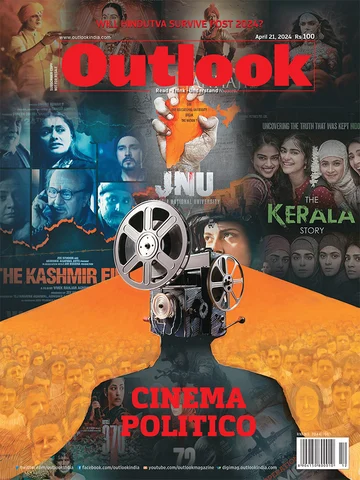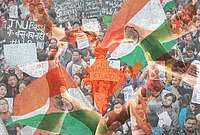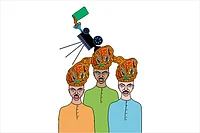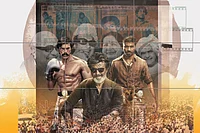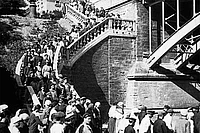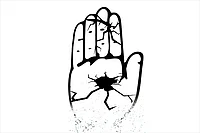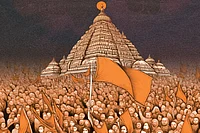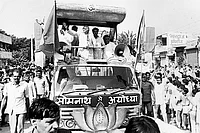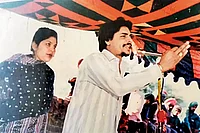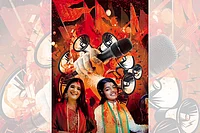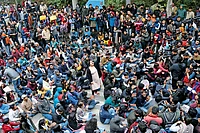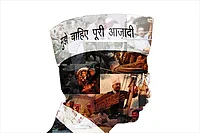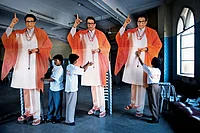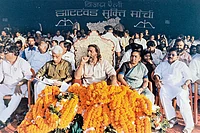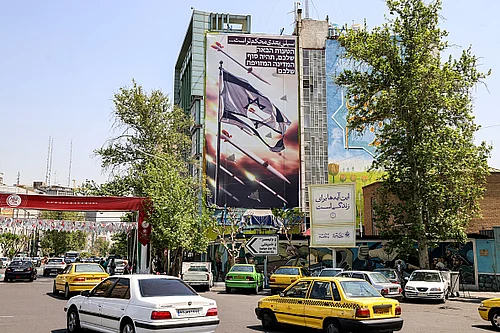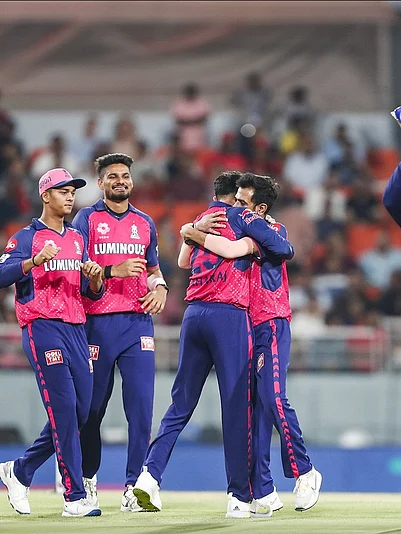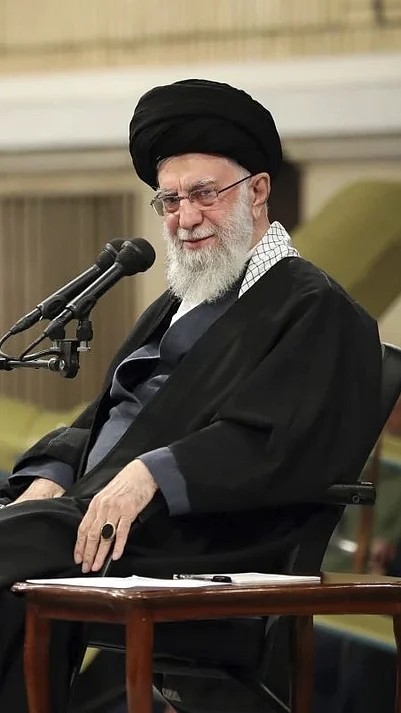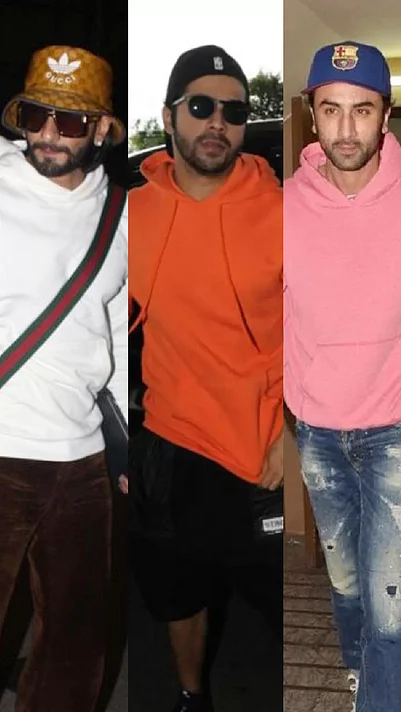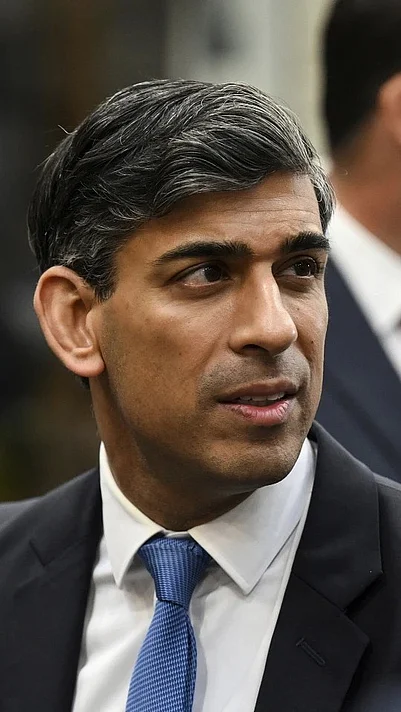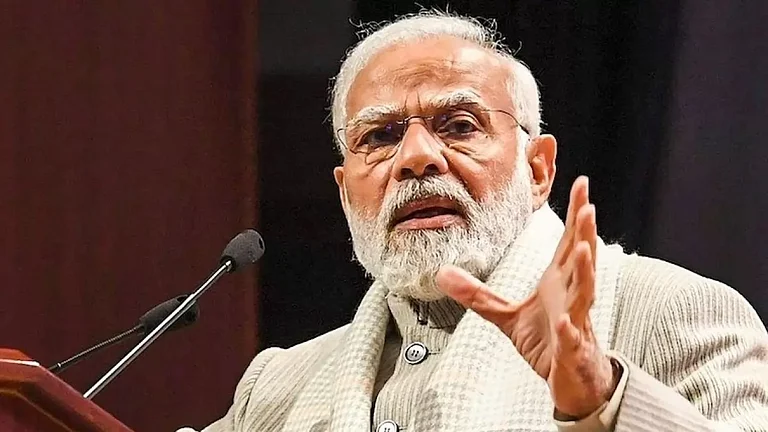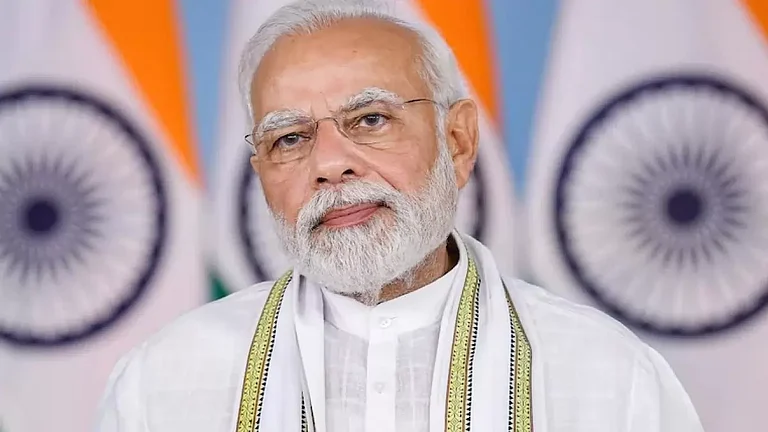Outlook Lens
Lok Sabha Election Phase 1 Voting LIVE: Voting for the first phase of Lok Sabha Elections 2024 is underway in a total of 102 constituencies across 21 states and Union Territories (UTs). As on 1 pm, West Bengal and Tripura have recorded a voter turnout of over 50 per cent in the first phase of Lok Sabha elections 2024. Puducherry, Manipur, Meghalaya, Jammu and Kashmir and Madhya Pradesh have recorded a turnout of over 40 per cent till 1 am. Meanwhile, the voter turnout in Uttar Pradesh stood at 36.96 per cent at the same time.
Advertisement
Latest
Advertisement
The West Bengal government declared an early summer break for state-run schools starting from April 22 which was initially scheduled from May 5 due to the heatwave conditions.
Advertisement
Lok Sabha Election Phase 1 Voting LIVE: Voting for the first phase of Lok Sabha Elections 2024 is underway in a total of 102 constituencies across 21 states and Union Territories (UTs). As on 1 pm, West Bengal and Tripura have recorded a voter turnout of over 50 per cent in the first phase of Lok Sabha elections 2024. Puducherry, Manipur, Meghalaya, Jammu and Kashmir and Madhya Pradesh have recorded a turnout of over 40 per cent till 1 am. Meanwhile, the voter turnout in Uttar Pradesh stood at 36.96 per cent at the same time.
Initially, it remained unclear whether the explosions resulted from Israel's retaliation. However, soon the Israeli attack was confirmed by Israel's ally, the United States, who reportedly had received prior information regarding the possible act of retaliation from Israel but 'did not endorse' the move, as per reports.
Magazine
Magazine Home
This issue of Outlook looks at the genre of nationalist and propaganda cinema in the Indian context, and also continues with the exploration of the ideology question when it comes to national parties
There have been concerted attempts to portray JNU in a certain way. The film JNU: Jahangir National University is just another product of the same propaganda machinery
A recent spate of Hindi films distorts facts and creates imaginary villains. Century-old propaganda cinema has always relied on this tactic
At a time when Bollywood is churning out propagandist narratives, south cinema, too, has stories to tell
Cinema’s real potency to harness the power of enchantment might want to militate against its use as a servile, conformist propaganda vehicle
Representation of Muslim characters in Indian cinema has been limited—they are either terrorists or glorified individuals who have no substance other than fixed ideas of patriotism
In south India, films have always been a vehicle to ride into politics
Previously portrayed as a peaceful paradise, post-1990s Kashmir in Bollywood has become politicised
While the trailer of 'The Kerala Story' claimed that 32,000 women from Kerala had undergone conversion and joined the IS, Nazeer Hussain’s offer was open-ended
Public opinion will never be devoid of ideology; but we shall destroy ourselves without philosophical courage
In the upcoming election, more than the Congress, the future of the Gandhi family is at stake
The idealogy of Hindutva faces a challenge in staying relevant
A seemingly harmless decision in 1979 ended up reshaping Indian politics. The biggest beneficiary was the BJP
Amar Singh Chamkila may be celebrated, but many of his songs are blatantly sexist
Hindutva pop stars are employing hyperbole and dog-whistling to ensure Modi gets a third term
Paul Murray’s The Bee Sting is a tender and extravagant sketch of apocalypse
Singing revolutionary songs was nothing new for us. However, going viral was definitely something new.
Previous Issue
Advertisement
With around 969 million registered voters, 543 constituencies across 36 states and Union Territories (UTs), India is voting from today for the Lok Sabha elections 2024, touted as the world's largest-ever democratic exercise. Phase 1 voting of Lok Sabha elections is taking place today in 102 constituencies across 21 states and UTs amid heavy security.
Lok Sabha Elections 2024: How Modi’s Guarantee Differs From Congress’ Nyay Patra
Lucknow Super Giants and Chennai Super Kings will meet in match 34 of the IPL 2024 in Lucknow on Friday. Here are three key player battles that are worth looking out for from the LSG Vs CSK match
Dibakar Banerjee revealed the reason behind casting fresh talents in 'Love Sex Aur Dhokha 2', his Netflix film, 'Tees' getting shelved, how it affected him and a lot more.
After Raj Kundra's name was brought up in an alleged money laundering case, the businessman has taken to his Instagram to share cryptic notes. Take a look at his Instagram Stories inside.
Ankita Lokhande revealed that Sushant Singh Rajput's family is still 'going through a lot' after his demise. The actor passed away in June 2020.
Salman Khan has left Mumbai for the first time after firing outside his home. He was clicked at the airport.
Perpetual succession is a legal arrangement to help you exit from your business or an organisation you have founded in the event of your death or retirement.
Lost In Time: Unveiling The Ancient Barabar Caves Near Bodh Gaya





















